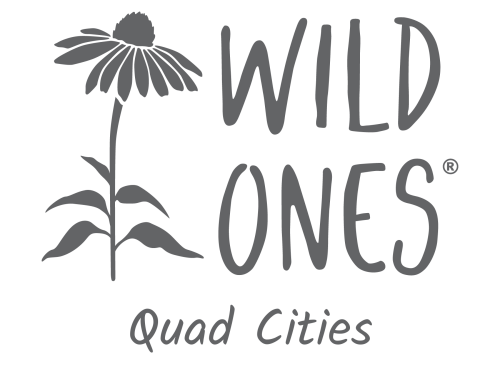written by Becki Wells
Have you ever seen a Facebook post from someone who just saw the first robin of the season?
How about the first hummingbird, dragonfly, or monarch butterfly? Don’t these discussions
make you feel great? But why? Is it because it’s a sign that spring is on the way, or that
summer is nearing, and you can feel the anticipation build when you will see a sign of the
upcoming beauty in your own yard?
As Wild Ones we do whatever we can to improve, plant, educate, and become the best
stewards of the earth as possible. We cultivate, germinate, plant, nurture, and care for our
native plants in hopes that we will soon see signs of bees, butterflies, and birds. We do this
because we know. We know what the earth is waiting for, we know the waiting is worth it. We
know that the land steward efforts started long before we began. This is about one individual
who dedicated his life to this mission, Aldo Leopold.
Aldo Leopold was born in 1887 in Burlington, Iowa. His love of nature was nurtured by his
father, Carl Leopold. Carl Leopold taught all of his children to appreciate the natural world.
During Leopold’s life he worked for the Forest Service and in other related environmental
professions before he became professor at the University of Wisconsin, Madison. He was an
early proponent of a holistic approach to wildlife conservation that promoted biodiversity and a
need for humans to understand the impact they had on the land around them. His work involved
keeping meticulous logs of “first sightings”, all done by hand in a log books. From the first bud
on an oak tree, to the first sighting of a robin in the spring. He cataloged, journaled, and
sketched all of it. Those works are still being translated and cataloged today.
Leopold is probably best known for his work in teaching others a New Land Ethic.
What is a Land Ethic?
Ethics direct all members of a community to treat one another with respect for the mutual
benefit of all. A land ethic expands the definition of “community” to include not only
humans, but all of the other parts of the Earth, as well: soils, waters, plants, and animals, or
what Leopold called “the land.” Leopold believed that without the mutual interactions
between humans and nature that the land would suffer and humans would suffer. He
believed that each needs the other. But not only did Leopold consider the nature, in his
teachings, he included all soils, waters, plants and animals, which he collectively called
“the land”.
Today Leopold is considered by many to be the father of wildlife ecology and the United
States’ wilderness system. Aldo Leopold was a conservationist, forester, philosopher,
educator, writer, and outdoor enthusiast. His Foundation’s mission is to foster a land ethic
through the legacy of Aldo Leopold. The Vision of the Foundation is to weave a land ethic
into the fabric of our society; to advance the understanding, stewardship, and restoration of
land health; and to cultivate leadership for conservation. Sound familiar?
Aldo Leopold week is coming up March 3rd through the 12th , and I encourage you to follow
some links and get familiar with one of the individuals who mastered teaching others the
ethics of the land. Read his book, learn his mind, you will be glad you took the time to
follow his lead.
The Aldo Leopold Foundation
Leopold Week
Green Fire: Aldo Leopold and a Land Ethic for Our Time, documentary film
A Sand County Almanac, by Aldo Leopold
Leopold Week 2023, Speaker Series & Registration
Sources:
https://www.bing.com/search?PC=ER05&FORM=ERSBDF&q=aldo+leopold
